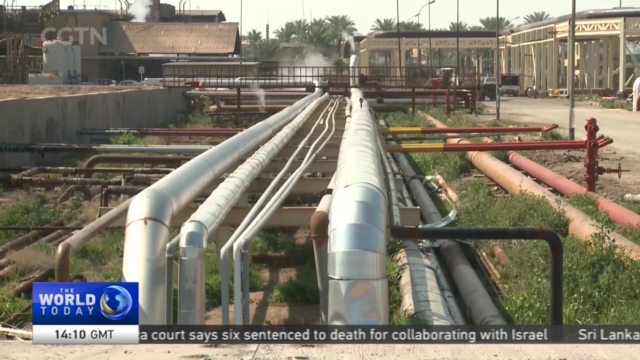
22:54, 03-Dec-2018
Walking the Wire: Iraq seeks to avoid impact of sanctions on Iran
Updated
22:33, 06-Dec-2018
01:55

American sanctions on Iran have put Iraq in a difficult situation. The United States says Iraq use dollars in its trade with Iran - even though Iraq depends on Iranian imports for market and energy stability.
Trade between Iraq and Iran was worth 11 to 12 billion dollars a year before the latest US sanctions. Many Iraqi businesses work exclusively on the importing and selling Iranian products, and now they have a problem.
HASSAN ZINI, DEPUTY CHAIRMAN BAGHDAD CHAMBER OF COMMERCE "There may be disruption to local markets and businesses because Iraqi customers are used to Iranian commodities despite the existence of alternatives."
YAHYA AL-SULTANI IRAQI ECONOMIST "These businesses will be affected a lot, and it will cause prices to rise because Iranian goods are cheaper than others in the region."
But trade is not the only concern. Central and southern areas of Iraq import 1,300 megawatts electricity and 14 million cubic meters of natural gas from Iran each year to meet the needs of citizens. It's an energy balance too fragile to maintain without Iran's support.
The United States have clearly stated that Iraq must comply with the sanctions and the government here cannot afford the risk of penalties imposed on entities and persons who breach them. So Baghdad is trying to find a solution that is acceptable to both Washington and Tehran.
YAHYA AL-SULTANI IRAQI ECONOMIST "Iraq wants to act as an intermediary between Iran and its creditors, paying Iran's debts directly to the countries claiming their financial benefits."
As there would be no direct disbursement, the Iraqi government would not be violating the sanctions, or suffer the loss to its energy grid. But this solution might weaken the intimidation of the sanctions, so Iraq needs the US to agree.

SITEMAP
Copyright © 2018 CGTN. Beijing ICP prepared NO.16065310-3
Copyright © 2018 CGTN. Beijing ICP prepared NO.16065310-3